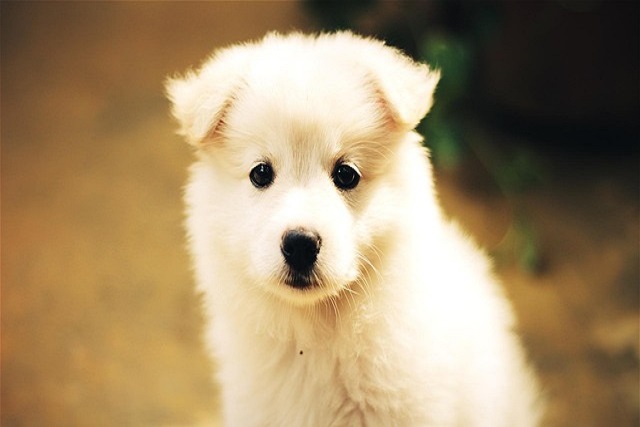
How do i train my dog to be obedient?
Watching your dog dart across the park ignoring your calls isn’t just frustrating—it can put them at risk near busy streets or public spaces.
Let's be honest, stepping in a cold puddle first thing in the morning or discovering a hidden "surprise" behind the sofa isn't exactly the highlight of puppy parenthood. That burning question – "When will my puppy finally be fully potty trained?" – echoes in the minds of countless new dog owners across the US, UK, and Europe. While we'd all love a magic number, the truth is far more nuanced, blending biology, consistent effort, and a good dose of patience. Expecting complete reliability overnight simply isn't fair to your furry bundle of energy.
Biologically speaking, puppies lack the physical control and cognitive understanding for reliable potty habits right away. Those tiny bladders are like sieves, and the signal between "I need to go" and "I'm going!" develops gradually. Most veterinary behaviorists and trainers agree that significant progress often happens between 4 and 6 months of age. This is when bladder and bowel muscles mature, and puppies start grasping the connection between eliminating outside and receiving praise (and maybe a tasty treat!). You'll likely see longer stretches between accidents and clearer signals – circling, sniffing intently, or heading towards the door.
However, declaring "fully potty trained" at 6 months isn't a guarantee for every pup. Smaller breeds, like Chihuahuas or Yorkies, often take longer – sometimes up to 8, 10, or even 12 months. Their teeny bladders fill faster, and frankly, they mature a bit slower than their larger cousins. Genetics play a role too; some lines just seem to "get it" quicker than others. Crucially, your consistency is the cornerstone. Irregular schedules, missed signals, or inconsistent reactions to accidents confuse your pup and drag out the process. Think of it like teaching a toddler – repetition and clear expectations are everything.

Now, let's talk environment and lifestyle, especially relevant for our European and North American readers. Apartment living in a bustling city presents different challenges than a house with a garden. Multiple flights of stairs mean getting outside takes longer. Recognizing your pup's unique signals becomes critical in these scenarios. Furthermore, always be mindful of local regulations. In many places, allowing your dog to soil public footpaths or private property isn't just inconsiderate; it's often against local ordinances. Always carry biodegradable bags – it’s not just polite, it’s frequently the law. Scooping poop promptly is non-negotiable for community health and respecting shared spaces.
Accidents? They are practically guaranteed, even with the best efforts. When they happen (not if), skip the scolding or rubbing their nose in it. This only creates fear and confusion, potentially leading to them hiding to eliminate. Instead, interrupt calmly if you catch them mid-act (a quick "Oops! Outside!"), whisk them to the designated spot, and praise lavishly if they finish there. The real cleanup hero is an enzymatic cleaner. Regular household cleaners might remove the smell to your nose, but they leave behind biological traces your puppy can still detect, screaming "Bathroom Here!" to them. Enzymatic cleaners break down those molecules, truly eliminating the scent marker.
So, when can you breathe easy? Many pups achieve reliable daytime habits by 6-8 months. But true "fully potty trained" status – meaning they can hold it reliably during your workday, through the night without a whimper, and in unfamiliar situations – often solidifies closer to 10-12 months, or even a bit later for small breeds. Don't despair if your 7-month-old has an off day; regression can happen due to stress, routine changes, or even minor illnesses. Stay consistent with the schedule and positive reinforcement.
The journey requires commitment. Stick to a strict feeding and potty break schedule. Supervise constantly indoors or use a crate appropriately (never for punishment!). Reward every single successful outdoor elimination like they just won the lottery. Understand that setbacks are part of the process, not failure. By managing expectations, employing consistent positive methods, respecting your community, and celebrating small victories, you’ll navigate the path to a reliably house-trained companion. The puddles and piles will become distant memories, replaced by the joy of a well-adjusted, clean-living dog.

Watching your dog dart across the park ignoring your calls isn’t just frustrating—it can put them at risk near busy streets or public spaces.

New puppy owners often find themselves rushing to clean up accidents before they set in, and that’s where puppy pad training becomes a game-changer.

If you've noticed your dog's waistline disappearing and your veterinarian has mentioned those few extra pounds, your first instinct might be to simply reduce the amount of food in their bowl.

Training a dog to use a designated spot indoors isn’t as daunting as many new owners fear, but it does take consistency and an understanding of your pet’s needs.

That moment of dread on a walk is all too familiar for many new dog owners. You see another dog approaching down the sidewalk of your neighborhood

If the sight of another dog on your neighborhood walk makes your heart sink as your own dog erupts into a frenzy of barking and lunging, you're not alone.